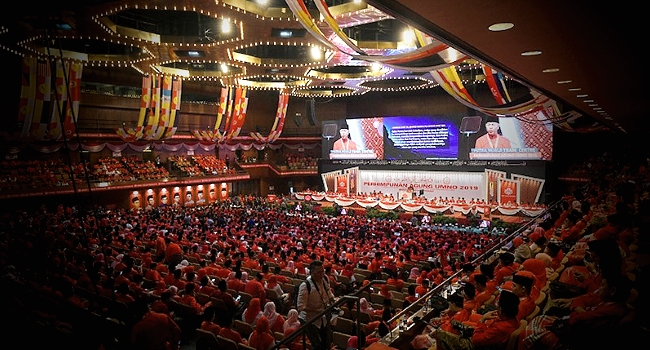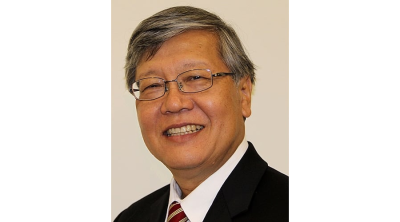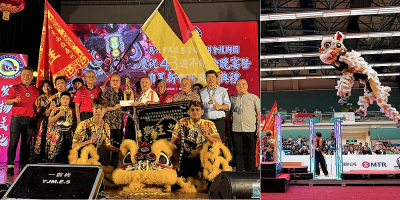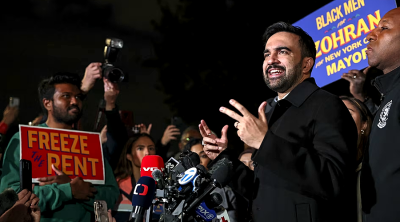By Tay Tian Yan, Sin Chew Daily
Ahmad Zahid was mercilessly blasting at Bersatu in the recent Umno general assembly, and wanted PAS to make a stand, either to go with his party or Bersatu.
Seated on the stage, PAS president Hadi Awang was stoned. When the Umno president said it was not too late now for PAS to go back to where Muafakat Nasional started, he was apparently sending out a stern warning message and would not bother to embarrass his guest.
After the opening ceremony, Hadi Awang was seen heading straight for the door. And we can understand how the PAS president felt at that time.
When BN/Umno lost the election in 2018 as well as several by-elections that followed, some of its elected reps decided to abandon the ship for the rival camp, sinking Umno into the deepest dilemma it had experienced since the party's founding. The party's future was bleak, simply put.
Back then PAS held out a hand and forged the new alliance Muafakat Nasional with Umno, with Malay grand unity as their spirit-lifting slogan. That worked very well to meet the needs of the Malay political market and the new alliance was well received in the Malay society.
In the following by-elections, MN thumped the ruling coalition. According to the polls, it had the support of at least 75% of Malay voters who hoped to reclaim the Malays' political dominance by way of such a cooperation model.
Given the unparalleled momentum back then, MN would not have problem winning the 15th general election provided that the two parties continued to work together.
And it also thrashed the faith of Bersatu and posed a real threat to the PH administration. Tun Mahathir attempted to dissolve the PH coalition and rope in both Umno and PAS out of sheer uneasiness to form a Malay unity government.
Fooled by his own subordinates in Bersatu as well as rivals in Umno, Mahathir quit the PM post on his own accord, bringing down the PH government and unexpectedly sending PN to power.

Key components of the BN government Bersatu, Umno and PAS are all Muslim parties. Collectively they take up a sizeable chunk of the country's Malay political realm and to a certain degree this has sort of fulfilled the objective of bringing a Malay unity government to fruition.
As a matter of fact, the survival of the PN government very much relies on the strong backing of MN components Umno and PAS.
Unfortunately, conflicts stand in the way of the tie-up among these three parties. A strong MN is a threat to Muhyiddin's Bersatu while Umno has always been resistant to Bersatu's admission into the MN pact. In the meantime, Umno has refused to join PN, insisting that Umno MPs have supported the PN government as individual reps.
As compromise has failed to materialize between Umno and Bersatu and it looks natural that these two parties will eventually go separate ways. As for PAS, the party finds itself sandwiched between the two. The Islamist party has indeed thought of acting as a bonding agent to bring the other two parties together, but such a goodwill has not been reciprocated.
Where PAS is concerned, even if it fails to bring the other two parties together, it doesn't really have to take stand to befriend one side and confront the other.
The thing is, Umno's tai kor attitude has not only taken itself out of PN, but has also demanded that PAS sever its ties with Bersatu.
Given such a humiliating treatment at the Umno assembly, PAS's Hadi Awang quickly issued a statement to reiterate that his party would continue to support the Muhyiddin-led PN government while accusing some in Umno of trying to disrupt the cordial PAS-Bersatu working relationship.
Up till this point it is obvious that between Bersatu and Umno, PAS has opted to go with the former.
On the surface, MN is still existent, but has now taken the back seat unless Umno changes its mind, or leadership.
A heads-on clash between Umno and Bersatu is inevitable, ad the shortlived relationship between the two is fast dissipating.
As for the so-called Malay grand unity, the crack has formed, with either side now eyeing to take down or even put a decisive end to the other through the election.
A Malay politician has said reassuringly that Chinese Malaysians need not actually worry about such a development because Malay unity is at best a slogan, some kind of fantasy that in reality has never existed nor will happen in future.
Umno was monopolizing the Malay political market during the early years since the country's independence, before PAS, a splinter from Umno, emerged, followed by Semangat 46, and then PKR, Amanah, Bersatu, etc. Some of these outfits didn't last long, such as Semangat 46.
So long as there is still market for power, new competitors will join in the race, and divergence of interest will continue to be there.
On the surface, the political opponents of the Malays are the non-Malays, but in reality, the Malays have already commanded an overwhelming majority of the country's political powers, and only Malay parties can gain access to this market to fight among themselves for more power.
On the one hand, the local Chinese community is concerned that their political space will be squeezed out by the Malay grand unity, they also fear that disunity in the Malay society will spawn political extremism poised to further erode non-Malays' political rights.
It is just as tough to be in the game as to be out of it!
ADVERTISEMENT
ADVERTISEMENT


































